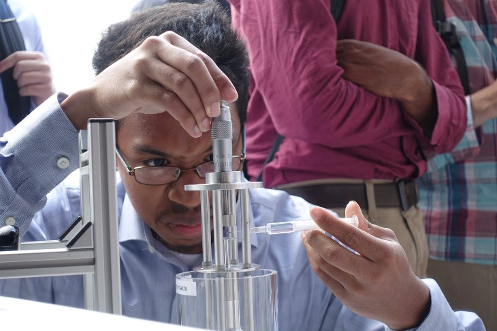Hands-on language and internship program in the Ruhr Valley
Courses
Location
The Ruhr Fellowship Program connects highly motivated undergraduate students in the United States with a unique experience to expand their portfolio and networks to one of the most dynamic and technologically advanced areas in Germany. As Germany’s “Cradle of Industry”, the Ruhr Area has come to represent creativity and innovation with its internationally renowned companies, universities, and research institutes. Fellowship awardees participate in a one-month intercultural and language immersion program at the university level followed by a one-month internship with one of Germany’s leading companies located in the Ruhr Area.
The Ruhr Fellowship Program is organized by the Initiativkreis Ruhr GmbH and the universities of the Ruhr Academic Triangle:
The Initiativkreis Ruhr GmbH is supported by more than 70 of the most important and influential companies in the area, such as E.ON, RWE, Siemens, Evonik Industries, ThyssenKrupp, Deutsche Bank, Vaillant, BP Europe, and Deutsche Telekom. Together these companies employ around 2.25 million people worldwide and generate sales of about 630 billion Euros, and their executives make up the Initiativkreis Ruhr as personal members. With future-oriented strategies and real-world concepts, the Initiativkreis relies on the creative strength of its cluster of economic know- how. This cooperative effort yields highly renowned projects for the development of the Ruhr metropolitan area and the industry as a whole.
The University Alliance Ruhr is an alliance of three universities – TU Dortmund University, Ruhr-Universität Bochum and the University of Duisburg-Essen – all located within 20 minutes of one another, along the Ruhr River. This is Germany's largest academic hub and home to 4 Fraunhofer Institutes, 3 Max-Planck Institutes and 18 Collaborative Research Centers selected for funding through the highly competitive DFG (German Research Society) process. The alliance of the three universities brings together over 100,000 students and over 6,000 researchers and professors to create a unique interdisciplinary approach and cutting-edge research opportunities.


